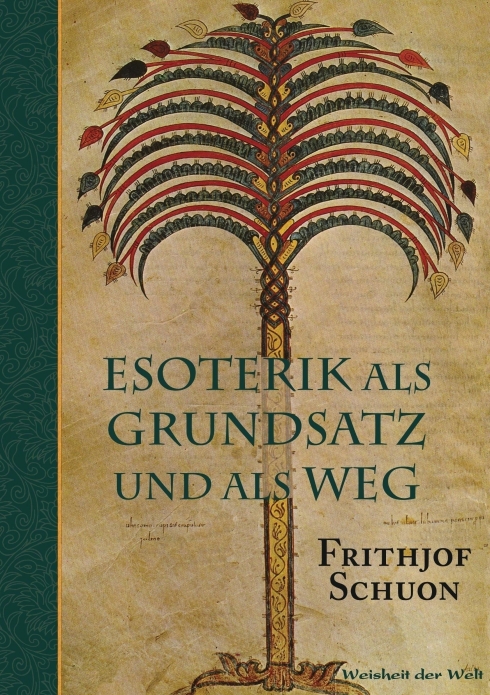
Frithjof Schuon Archive

Lettres
| Titre | Résumé | Publication Data | Dated |
|---|---|---|---|
| Extract from a letter from Frithjof Schuon | Regarding the question of transubstantiation, which I address briefly in Logic and Transcendence, the Oriental character of the words in question can be seen in their use of ellipsis: Christ did not say, “I am like a vine, like a door”, but he said, “I am the vine, the door”; likewise he did not say, “This conveys divine power in the same way my body conveys divine power”, but he said, “This is my body”. | Logic & Transc. p.237 | 02/01/1976 |
| Extract from a letter from Frithjof Schuon | One should not reproach a science for not being what it does not want to be or for not providing what it does not want to provide. In this respect one should not criticize modern chemistry insofar as it studies the phenomena it intends to study, for on its limited plane it remains within adequation and is not exceeding its strengths; nor can one blame it for remaining within the strictly human perspective in relation to matter, for it need not go beyond this point, and indeed no physical science needs to do so. | Logic & Transc. p.235 | 06/22/1964 |
Featured Books
Esoterik als Grundsatz und als Weg
Le contenu comprend une profonde réflexion métaphysique sur le double visage du monde à partir du concept du voile, des aperçus d’une cosmologie fidèle à la tradition basée sur une doctrine des nombres, et des essais fondamentaux et pratiques sur l’anthropologie : les vertus, la sexualité, l’amour de Dieu et l’amour du prochain.
Featured Poems
Adastra and Stella Maris: Poems by Frithjof Schuon-The Aura
All creatures exist in order to say “God”;
Adastra and Stella Maris: Poems by Frithjof Schuon-Outlook
You think you own your earthly life;
Adastra and Stella Maris: Poems by Frithjof Schuon-Pneuma
Man lives in two worlds; it is hard
Featured Articles
Foreword to various poetry volumes by Schuon
A Schuon Sentence
A. K. Saran’s article appeared in the journal Sophia as part of an issue dedicated to the life and thought of the late Frithjof Schuon. It is a wide-ranging view of some key Schuonian, and thus « Perennialist, » concepts, as Saran focuses on Schuon’s book The Eye of the Heart. A. K. Saran also incorporates much traditional Hindu thought and the words of A. K. Coomaraswamy throughout this exploration of some aspects of Schuon’s thought.
